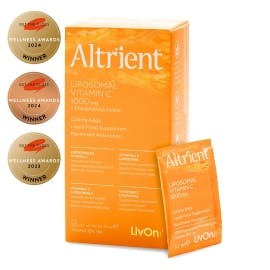An Introduction to Antioxidants – How Do They Work?
You have read about antioxidants in countless newspaper articles, blogs and health magazines – but do you really understand what an anti-oxidant is? According to a recent study by nutritional products company MonaVie, 92% of Americans cannot give an accurate description of what an antioxidant is.
Antioxidants and Free Radicals – How it Works
An antioxidant is a mineral, vitamin or other nutrients that might protect and repair cells in your body against that damage that is caused by free radicals. While oxygen is vital for life, it is also a very highly reactive atom that will form into a potentially damaging molecule called a free radical. A free radical is a result of many factors, including chemicals, an unhealthy diet, tobacco smoke or pollution. These molecules contain an unpaired electron that they are unstable, so they reach out and take an electron from other substances to balance themselves.
This is an oxidation process that is similar to what happens when metal starts to rust, peeled apples turn brown or oils become rancid. As we age, our cells that are damaged by oxidation start to accumulate.
This oxidation process can cause damage to the healthy cells of the body, which can eventually lead to disease and disorders. Cell damage which is caused by free radicals can be a major contributor to diseases such as heart disease and cancer. It can also cause a decline in your immune system and a decrease in your brain function.
Antioxidants help to control the formation of free radicals naturally. They are able to deactivate or stabilize the free radicals before they attack the cells. The human body contains a few natural antioxidant mechanisms, but it is also important to eat a healthy diet in order to ensure that the antioxidant levels in the body are high.
Antioxidants include vitamin C, beta-carotene, vitamin E, zinc and selenium. These nutrients are found naturally in a number of foods. For example, vitamin C occurs naturally in grapefruit, honeydew, orange, kale, nectarines and papaya. Zinc occurs in nuts, beans, oysters and red meats.
What Benefits do Antioxidants Have?
Antioxidants have a lot of fantastic benefits for the human body. Many studies believe that they help to reduce the risk for certain cancers and heart disease, although these studies are not 100% conclusive. Also, vitamin C, vitamin E, beta-carotene and zinc have been proven to decrease the risk of age-related eye diseases.
With the right supplements of antioxidants, especially the very powerful vitamin C, you can help to reduce free radicals in your body and help keep yourself healthier and more youthful for as long as possible.


.jpg?auto=format&q=45&w=262&trim=auto)
.jpg?auto=format&q=45&w=262&trim=auto)
